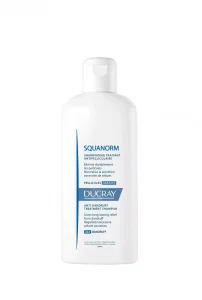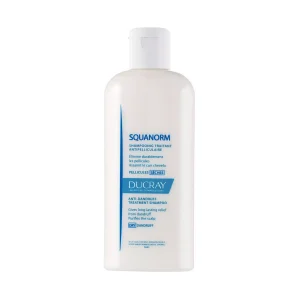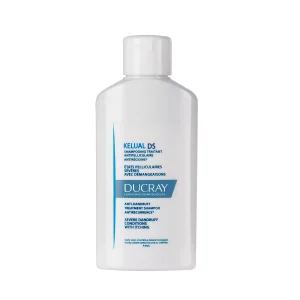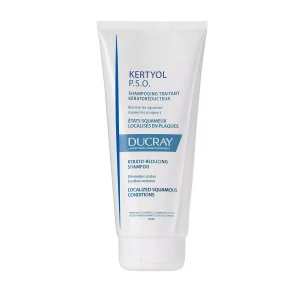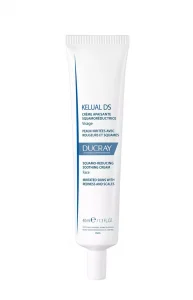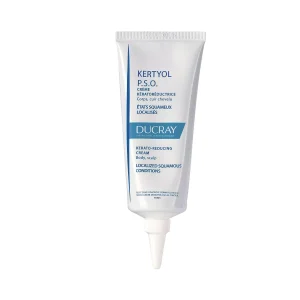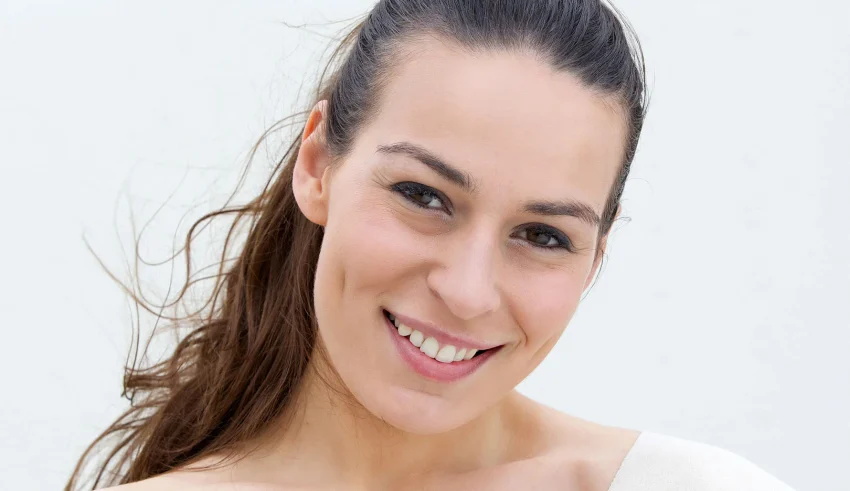
Dandruff is a common condition that can cause inflammation and itching of the scalp. This can lead to the formation of white flakes on the hair. Regardless of the season, your hair type and color, your gender, or your lifestyle, these visible flakes can be embarrassing and even lead to low self-esteem. Fortunately, there are many dandruff remedies available to treat this annoying, irritating, and often unsightly condition. Read this article from The Dermo Lab, in collaboration with the dermatologist Dr. Abeer Abu El Einin, to learn what dandruff is and how to treat it.
When does dandruff start?
Dandruff can appear at any time, although it tends to be more prevalent during the teenage years. That’s because when your hormones change, you start to produce more sebum, a key ingredient that can cause dandruff to appear.
According to Dr. Abeer Abu El Einin, you may start to experience skin flakes, scaly, red, and itchy scalp. These are the signs of dandruff.
Of course, adolescence isn’t the only time your hormones change – there are many other times in your life when this is likely to happen too.
So, if you’re experiencing dandruff for the first time later in life, don’t worry: it’s easy to treat and keep the flakes away.
How do you get dandruff?
The cause of dandruff is a naturally occurring microbe on the scalp called Malassezia globosa. It’s found on all scalps, but it only causes dandruff in 50% of people.
Here’s how it works:
- Malassezia globosa feeds on the scalp’s natural oils, called sebum. It is this oil that keeps the hair and scalp moisturized.
- As sebum breaks down, it produces a by-product called oleic acid. One in two people are sensitive to oleic acid and the scalp reacts by becoming irritated.
- In response to this irritation, the scalp begins to inflame, become red and itchy.
- The body signals the brain to shed skin cells faster than usual, essentially trying to get rid of the irritant. This shedding of the skin causes visible flakes on the scalp, which often fall on the shoulders.
While the root cause of dandruff is always the same, some factors can exacerbate the problem or make it worse.
These include:
- Hormonal changes
Hormones control the production of sebum. Hormonal changes can therefore increase the amount of sebum on the scalp and cause a flare-up of dandruff. This is most likely to happen during puberty.
- Stress
High levels of stress can contribute to dandruff by causing temporary hormonal changes.
- Hairstyling
Many of us use hair products such as gels and sprays, but the build-up of certain products can aggravate the scalp condition and contribute to a flare-up of dandruff.
- The weather
Different temperatures and weather conditions can make your hair and scalp drier, oilier, or more irritated, making dandruff worse.
- Pollution
Dirt from our environment clings to our hair and skin and can build up, irritating the scalp and causing dandruff.
- Wearing a hat
Hats can create a warm, moist microclimate around your scalp – the perfect environment for dandruff-causing microbes to thrive!
What are the dandruff remedies?
Several dandruff remedies can help. Most of them either attack the fungus that triggers dandruff or reduce excess oil. Here are details on each:
1- Dandruff shampoos
The best way to get rid of dandruff is to use an anti-dandruff shampoo that has been proven effective against flakes, itching, redness, and dry scalp. To do this, you need to use a shampoo with the right active ingredient, such as zinc pyrithione. This ingredient attacks the root cause, the Malassezia globosa microbe, which is present on all scalps.
By addressing the source of the problem, it breaks the cycle of dandruff irritation instead of just treating the symptoms like other shampoos.
Ketoconazole shampoos, tar-based shampoos, shampoos containing salicylic acid, selenium sulfide shampoos can also treat dandruff. Use your anti-dandruff shampoo regularly to keep dandruff under control and flakes at bay.
To make it easier for you, we’ve rounded up some of the best anti-dandruff shampoos on the market today.
For oily dandruff:
Ducray Squanorm Anti-Dandruff Treatment Shampoo – Oily Dandruff
For dry dandruff:
Ducray Squanorm Anti-Dandruff Treatment Shampoo – Dry Dandruff
For dandruff caused by seborrheic dermatitis:
Ducray Kelual DS Treatment Shampoo
For dandruff caused by psoriasis:
Ducray Kertyol P.S.O Rebalancing Shampoo
2- Scalp treatment
If you suffer from psoriasis or seborrheic dermatitis, you can benefit from the medical treatments below.
The following creams can be applied twice a day to the edge of the scalp to remove flakes and soothe itching.
For dandruff caused by seborrheic dermatitis:
Ducray Kelual DS Squamo-Reducing Anti-Recurrence Soothing Cream
For dandruff caused by psoriasis:
Ducray Kertyol P.S.O Local Use Concentrate
3- Make time to distress
Stress can aggravate dandruff. So, get more sleep, exercise, talk to someone about how you feel, and try relaxation methods such as meditation.
Frequently asked questions about dandruff remedies
Can I use an anti-dandruff shampoo on my beard if I have beard dandruff?
Dr. Abeer Abu El Einin affirms that yes, you can.
If you don’t already, wash your beard the same way you wash your hair. You can use the same medicated shampoo you use for your scalp that is designed to treat dandruff.
How can I treat eyebrow dandruff?
Dr. Abeer Abu El Einin suggests a proper diet, an anti-fungal cream, or an anti-dandruff shampoo.
Simply squeeze the shampoo into your hand, lather it up, and rub it onto your eyebrows, leaving it on for a few minutes before rinsing.
Is sunlight good for dandruff?
According to Dr. Abeer Abu El Einin, sunlight helps suppress the fungus that causes dandruff.
Therefore, spend some time in the sun to fight dandruff. Just be sure to protect your skin, including exposed scalp, by wearing a broad-spectrum sunscreen with an SPF of 30 or higher.
Last Updated on April 16, 2024

